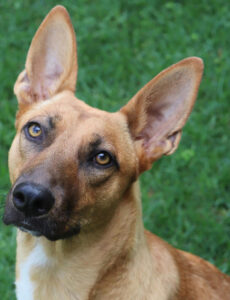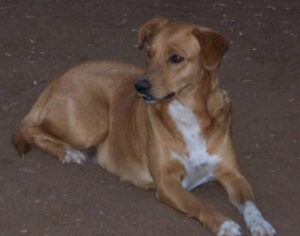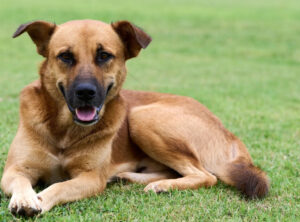Uncovering the Enigmatic Africanis Dog Breed: A Journey Through History and Heritage
Unveiling the Africanis dog breed: Explore the rich history, unique traits, and importance of preserving this ancient African breed.
Overview of the Africanis Dog Breed
The Africanis dog breed has a fascinating origin and history that dates back over 7,000 years in Southern Africa, making it one of the oldest breeds in the region. This long history showcases the deep-rooted connection between Africanis dogs and indigenous cultures that have relied on them for various purposes. For instance, Bantu-speaking people and San hunter-gatherers traditionally used Africanis dogs for hunting and protection, highlighting their integral role in African societies throughout the ages.
Moreover, the genetic makeup of Africanis dogs can be traced back to an ancient species of wolf, emphasizing their significant heritage within the African continent. This lineage not only underscores the breed’s historical importance but also contributes to its distinct characteristics and behaviors that have been honed over thousands of years of evolution. One specific example of this deep-rooted heritage is the breed’s high survival instinct, which is a testament to its ability to thrive in challenging environments and harsh conditions, reflecting the breed’s resilience and adaptability in its purest form.
Origin and History of Africanis Dogs
Originating from Africa, the Africanis breed has a rich and fascinating history that dates back over 7,000 years, making it one of the oldest breeds in Southern Africa. The breed’s journey alongside humans has been marked by resilience and adaptability, as Africanis dogs have navigated diverse environments and cultures, showcasing remarkable variation in coat colors and sizes over the centuries.
One illustrative example of the Africanis breed’s historical significance is its traditional role among the Bantu-speaking people and San hunter-gatherers. These indigenous communities deeply valued the Africanis dogs for their hunting prowess, loyalty, and protective instincts, which were essential for their survival and well-being in challenging environments. The symbiotic relationship between Africanis dogs and these communities not only highlights the breed’s practical utility but also emphasizes the emotional connection and partnership that existed between humans and dogs, shaping the breed’s temperament and characteristics.
Physical Characteristics and Appearance
Africanis dogs boast a striking physical appearance that sets them apart from other breeds. Their medium-sized, well-proportioned bodies are not only aesthetically pleasing but also serve practical purposes. For example, their muscular build and agility make them well-suited for various tasks such as hunting and herding, showcasing the breed’s versatility. The short, dense coat of Africanis dogs is not only easy to maintain but also provides protection against the elements, emphasizing the breed’s adaptability to different climates and terrains.
Moreover, the variations in coat colors among Africanis dogs add to their charm and uniqueness. For instance, the fawn, brindle, and black coats not only make each dog visually distinct but also reflect the breed’s genetic diversity and rich heritage. These coat colors have evolved over generations, influenced by the environments in which Africanis dogs have lived and thrived. The sleek appearance of Africanis dogs, coupled with their well-defined muscles, highlights their robustness and physical prowess, essential traits that have been honed through centuries of natural selection.

Temperament and Behavior Traits
Africanis dogs are known for their highly social nature and strong family bonds, which stem from their historical role as companions to Bantu-speaking people and San hunter-gatherers. This deep-rooted bond with humans highlights the breed’s loyalty and affectionate demeanor towards their families. For example, Africanis dogs are often described as intuitive and sensitive to their owners’ emotions, making them empathetic companions in therapy settings.
In addition to their social nature, Africanis dogs exhibit remarkable intelligence and adaptability, traits that have been honed over thousands of years of evolution alongside humans in Africa. These qualities enable Africanis dogs to thrive in various roles, such as search and rescue operations, where their keen senses and problem-solving abilities are put to good use. For instance, Africanis dogs have been successfully trained to track scents over long distances, showcasing their intelligence and dedication to the tasks at hand.
Adoption and Rescue Considerations
The Africanis Society, established in 1998, not only plays a crucial role in preserving the genetic diversity and heritage of the breed but also serves as a valuable resource for potential adopters. Understanding the specific needs of Africanis dogs is fundamental to providing them with a suitable environment where they can thrive. For instance, due to their history as working dogs, they have a natural inclination towards activities that challenge them mentally and physically, making regular exercise and mental stimulation essential components of their care.
When considering adoption, it’s important for individuals or families to recognize that Africanis dogs require a significant amount of human interaction and companionship. These dogs form strong bonds with their families and thrive in environments where they receive love and attention. For example, their loyalty and intelligence make them well-suited for roles such as therapy work, where they can provide comfort and support to those in need. Rescue organizations specializing in Africanis dogs go above and beyond to ensure that these animals are placed in homes where their unique characteristics and needs are understood and catered to, contributing to their overall well-being and happiness.

Importance of Preserving Indigenous Breeds
Preserving indigenous breeds such as the Africanis is not only vital for the conservation of biodiversity but also plays a significant role in safeguarding cultural heritage. These breeds embody a rich tapestry of history and traits that are deeply rooted in the regions where they originated. For example, the Africanis dog, with its lineage dating back over 7,000 years in Southern Africa, serves as a living testament to the longstanding relationship between humans and dogs on the continent.
The Africanis Society, established to conserve the ancient and valuable gene pool of the Africanis breed, prioritizes conservation efforts that go beyond merely breeding for selective characteristics. By focusing on the preservation of the breed in its most natural form, the society ensures that future generations can appreciate and benefit from the unique qualities that make Africanis dogs exceptional companions and working animals. Moreover, the society’s dedication to raising awareness about indigenous breeds like the Africanis highlights the importance of recognizing and celebrating the diversity of canine heritage across different regions.




